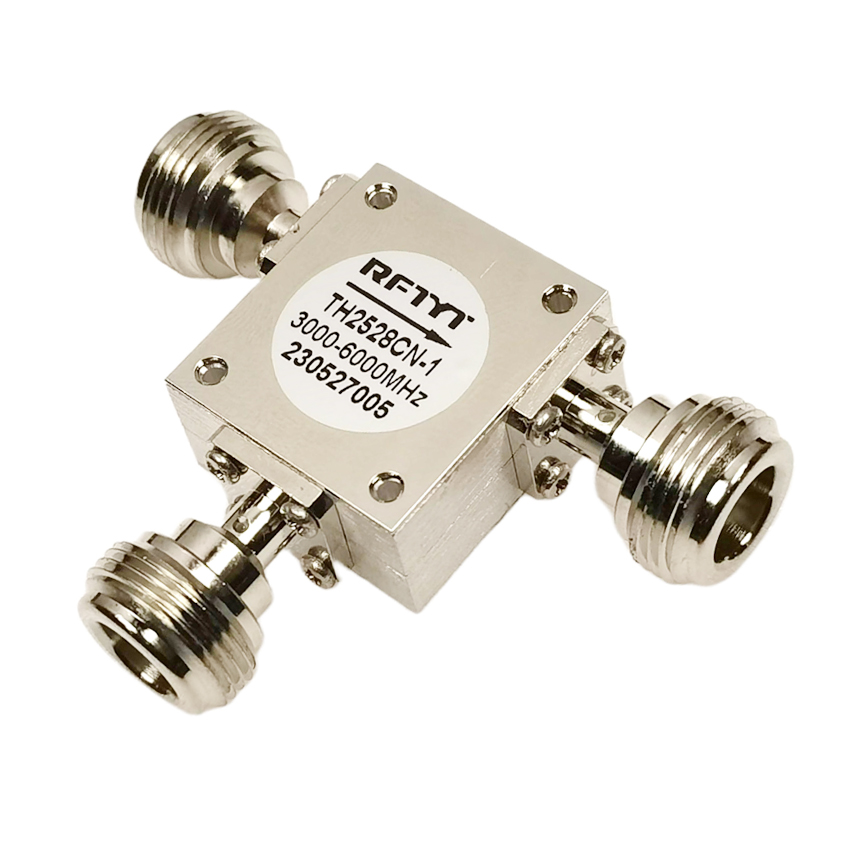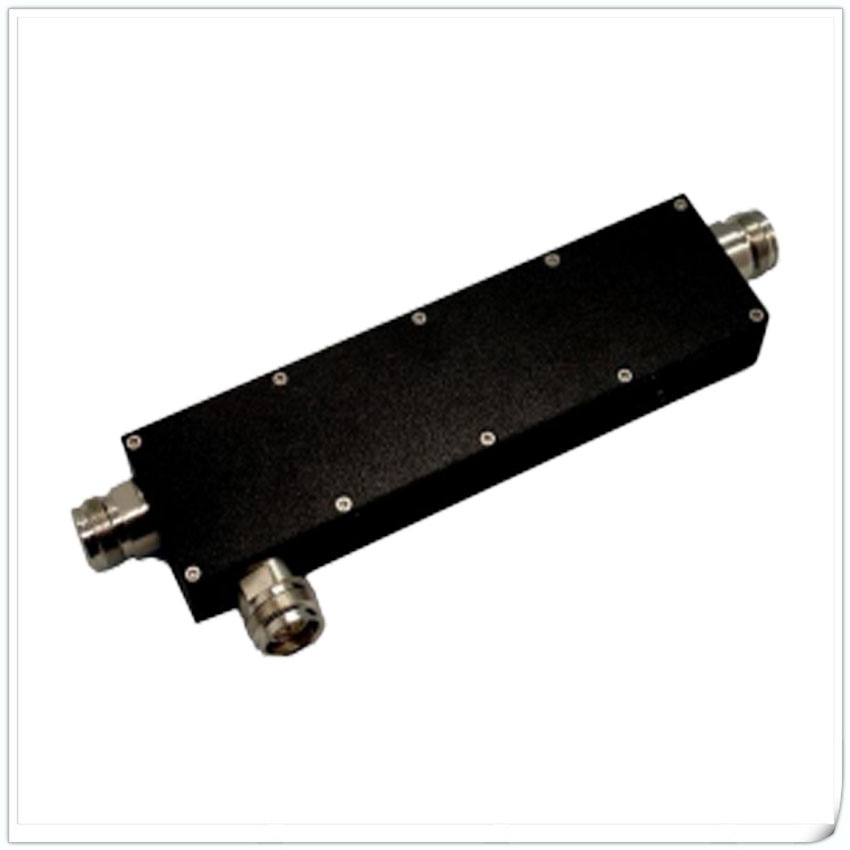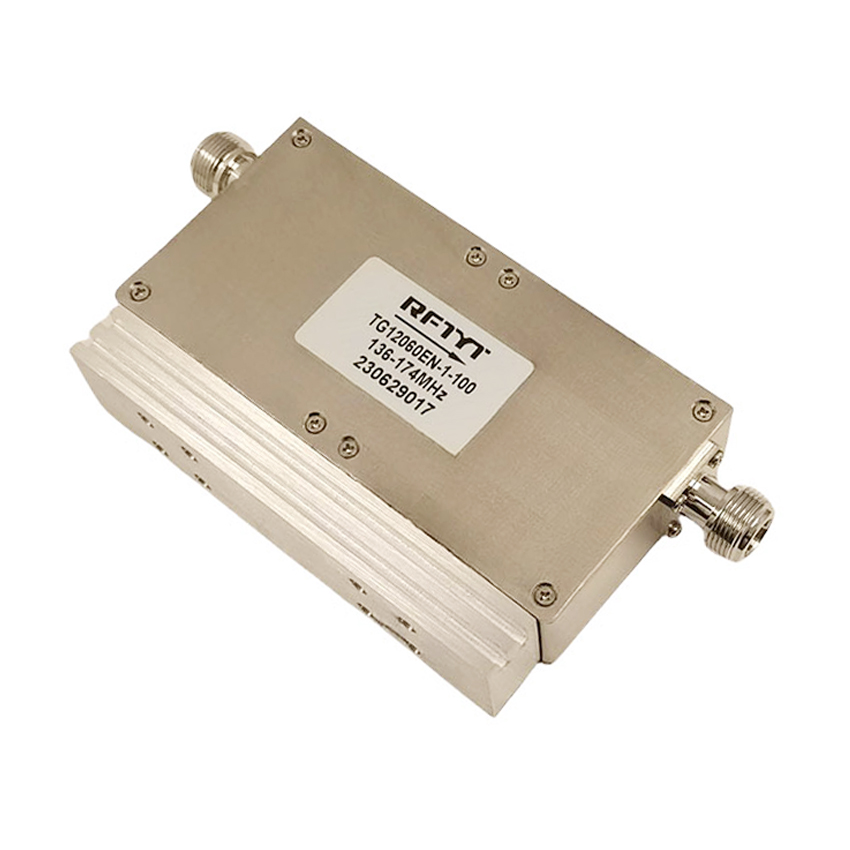
Products
Broadband Circulator
Data Sheet
| RFTYT 950MHz-18.0GHz RF Broadband Coaxial Circulator | |||||||||
| Model | Freq.Range | BandWidth Max. |
IL. (dB) |
Isolation (dB) |
VSWR | Forward Power (W) |
Dimension WxLxH mm |
SMA Type | N Type |
| TH5656A | 0.8-2.0GHz | Full | 1.30 | 13.0 | 1.60 | 50 | 56.0*56.0*20.0 | / | |
| TH6466K | 0.95-2.0GHz | Full | 0.80 | 16.0 | 1.40 | 100 | 64.0*66.0*26.0 | ||
| TH5050A | 1.35-3.0 GHz | Full | 0.60 | 17.0 | 1.35 | 150 | 50.8*49.5*19.0 | ||
| TH4040A | 1.5-3.5 GHz | Full | 0.70 | 17.0 | 1.35 | 150 | 40.0*40.0*20.0 | ||
| TH3234A TH3234B |
2.0-4.0 GHz | Full | 0.50 | 18.0 | 1.30 | 150 | 32.0*34.0*21.0 | Threaded Hole Through Hole |
Threaded Hole Through Hole |
| TH3030B | 2.0-6.0 GHz | Full | 0.85 | 12.0 | 1.50 | 30 | 30.5*30.5*15.0 | / | |
| TH2528C | 3.0-6.0 GHz | Full | 0.50 | 18.0 | 1.30 | 150 | 25.4*28.0*14.0 | ||
| TH2123B | 4.0-8.0 GHz | Full | 0.50 | 18.0 | 1.30 | 30 | 21.0*22.5*15.0 | ||
| TH1319C | 6.0-12.0 GHz | Full | 0.70 | 15.0 | 1.45 | 20 | 13.0*19.0*12.7 | / | |
| TH1620B | 6.0-18.0 GHz | Full | 1.50 | 9.5 | 2.00 | 30 | 16.0*21.5*14.0 | / | |
| RFTYT 950MHz-18.0GHz RF Broadband Drop in Circulator | |||||||||
| Model | Freq.Range | BandWidth Max. |
IL. (dB) |
Isolation (dB) |
VSWR (Max) |
Forward Power (W) |
Dimension WxLxH mm |
Strip line (TAB) Type | |
| WH6466K | 0.95-2.0GHz | Full | 0.80 | 16.0 | 1.40 | 100 | 64.0*66.0*26.0 | ||
| WH5050A | 1.35-3.0 GHz | Full | 0.60 | 17.0 | 1.35 | 150 | 50.8*49.5*19.0 | ||
| WH4040A | 1.5-3.5 GHz | Full | 0.70 | 17.0 | 1.35 | 150 | 40.0*40.0*20.0 | ||
| WH3234A WH3234B |
2.0-4.0 GHz | Full | 0.50 | 18.0 | 1.30 | 150 | 32.0*34.0*21.0 | Threaded Hole Through Hole |
|
| WH3030B | 2.0-6.0 GHz | Full | 0.85 | 12.0 | 1.50 | 30 | 30.5*30.5*15.0 | ||
| WH2528C | 3.0-6.0 GHz | Full | 0.50 | 18.0 | 1.30 | 150 | 25.4*28.0*14.0 | ||
| WH2123B | 4.0-8.0 GHz | Full | 0.50 | 18.0 | 1.30 | 30 | 21.0*22.5*15.0 | ||
| WH1319C | 6.0-12.0 GHz | Full | 0.70 | 15.0 | 1.45 | 20 | 13.0*19.0*12.7 | ||
| WH1620B | 6.0-18.0 GHz | Full | 1.50 | 9.5 | 2.00 | 30 | 16.0*21.5*14.0 | ||
Overview
The structure of the broadband Circulator is very simple and can be easily integrated into existing systems. Its simple design facilitates processing and enables efficient production and assembly processes. Broadband Circulators can be coaxial or embedded for customers to choose from.
Although broadband Circulators can operate over a wide frequency band, achieving high-quality performance requirements becomes more challenging as the frequency range increases. In addition, these annular devices have limitations in terms of operating temperature. The indicators in high or low temperature environments cannot be well guaranteed, and become the optimal operating conditions at room temperature.
RFTYT is a professional manufacturer of customized RF components with a long history of producing various RF products. Their broadband Circulators in various frequency bands such as 1-2GHz, 2-4GHz, 2-6GHz, 2-8GHz, 3-6GHz, 4-8GHz, 8-12GHz, and 8-18GHz have been recognized by schools, research institutions, research institutions, and various companies. RFTYT appreciates the customer's support and feedback, and is committed to continuous improvement in product quality and service.
In summary, broadband Circulators have significant advantages such as wide bandwidth coverage, good isolation performance, good port standing wave characteristics, simple structure, and ease of processing. When operating within a limited temperature range, these circulators excel at maintaining signal integrity and directionality. RFTYT is committed to providing high-quality RF components, which has earned them the trust and satisfaction of customers, driving them to achieve greater success in product development and customer service.
RF Broadband Circulator is a passive three port device used to control and manage signal flow in RF systems. Its main function is to allow signals in a specific direction to pass while blocking signals in the opposite direction. This characteristic makes the circulator have important application value in RF system design.
The working principle of the circulator is based on Faraday rotation and magnetic resonance phenomena. In a circulator, the signal enters from one port, flows in a specific direction to the next port, and finally leaves the third port. This flow direction is usually clockwise or counterclockwise. If the signal attempts to propagate in an unexpected direction, the circulator will block or absorb the signal to avoid interference with other parts of the system from the reverse signal.
RF broadband circulator is a special type of circulator that can handle a series of different frequencies, rather than just a single frequency. This makes them very suitable for applications that require processing large amounts of data or multiple different signals. For example, in communication systems, broadband circulators can be used to process data received from multiple signal sources of different frequencies.
The design and manufacturing of RF broadband circulators require high precision and professional knowledge. They are usually made of special magnetic materials that can generate necessary magnetic resonance and Faraday rotation effects. In addition, each port of the circulator needs to be accurately matched to the signal frequency being processed to ensure the highest efficiency and lowest signal loss.
In practical applications, the role of RF broadband circulators cannot be ignored. They can not only improve the performance of the system, but also protect other parts of the system from interference from reverse signals. For example, in a radar system, a circulator can prevent reverse echo signals from entering the transmitter, thereby protecting the transmitter from damage. In communication systems, a circulator can be used to isolate the transmitting and receiving antennas to prevent the transmitted signal from directly entering the receiver.
However, designing and manufacturing a high-performance RF broadband circulator is not an easy task. It requires precise engineering and manufacturing processes to ensure that each circulator meets strict performance requirements. In addition, due to the complex electromagnetic theory involved in the working principle of the circulator, designing and optimizing the circulator also requires profound professional knowledge.














